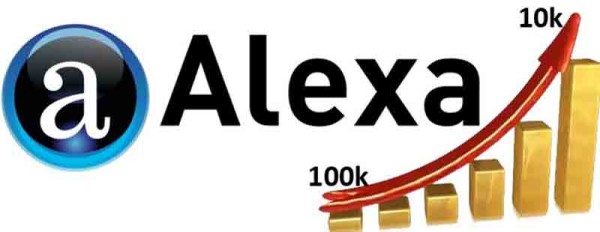How to increase Alexa rank and why you shouldn’t trust it

For most webmasters, Alexa rank is one of those things that you think a lot about it — especially you think a lot about it when you start your new website. You look for all kind of things how to increase (or maybe I should say “decrease”) it. You actually decreasing it, because at the beginning you start with multiple millions (rank) and slowly going down. However, most still get the idea that it’s actually increasing when it’s going down. So, let’s keep the word “increase” in our further explanation.
Many new webmasters really don’t know how it works (even a lot “advanced” don’t know it too and, yes, even in 2014). A lot of them think that by just getting a lot of traffic their Alexa rank can increase as well. This is not true at all. You can get thousand of visitors, and your rank can stay the same. Why? Because Alexa rank is calculated by visitors who use Alexa Toolbar installed in their browsers. So basically to increase Alexa rank of your website you have to attract as many visitors who use Alexa Toolbar as you can. The more you get, the better your rank can be. Simple as that.
Now you know how to increase Alexa rank, but you also should know why you shouldn’t trust it too much.
If you are a person who looks to advertise on sites, and you look a lot at sites Alexa rank, you shouldn’t trust what you see out there. There are a lot of sites out there with really high traffic, but their Alexa rank is not that good. There are a lot of sites out there with small traffic, but their Alexa rank is quite decent. And you should know why it is this way, because the answer is written above.
For summing everything up, even a site with Alexa rank below 100,000 can be pretty much worthless for advertising, while another site with above 500,000 can be a good choice for that. How to know it for sure? By asking the site’s owner how much traffic he/she receives. That is pretty much the only good way to know how much traffic a site receives. Everything else is just speculations and mostly misleading too.
